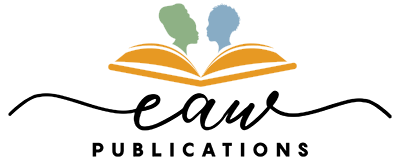4 Ways How Riddles for Kids become fun learning
Fun is important for kids as they learn. When a child learns to read, we use riddles and rhymes to help make the task fun and entertaining. Riddles for kids are far more beneficial than one may think as there is a certain logic behind them that helps with a child’s cognitive association and emotional expression. Children think, they repeat, they laugh and they learn. To better understand the joy of using riddles to help your kids learn and grow, check out the 4 points below.
Riddles for kids makes them laugh
Absolutely nothing is much more valuable than a child’s laughter. Everyone feels good when they hear a child laugh. Watch them working on a monotonous task. They always find some song or rhyme. laughter and play to help themselves forget the boring parts, and turn it into fun. A lot of people talk about how kids learn better when they have a song. They remember the rhyme better. In the Caribbean, they learn how to multiply using rhymes and riddles. Kids are obsessed with knock-knock jokes and no matter how inane they are they make everyone roar with laughter from the fun of delivery.
Makes them think
Riddles for kids make children think critically of the situation and try to come up with clever ways to solve problems. This same way of thinking is what they are looking for in problem-solving on SAT and the ACT in American culture. Critical reasoning and problem-solving skills are two of the most treasured abilities in our society today. Studies show that riddles improve children’s understanding and creativity, which prove they are a great exercise for your mind. We adults do this. Let the children learn early.
It’s funny that riddles can be so difficult especially as they are a part of our culture. I think every culture has some riddles that they treasure and pass on from generation to generation. It is this comfort that comes from knowing that there are riddles in our own culture that makes learning using riddles so basic and useful. Riddles teach kids word relationship, idioms, punctuation and just how to speak one to another.
Improve their reading comprehension
In the USA literacy rates are 99 percent, but understanding is another story. Understanding difficult subject matter is a challenge for most readers. In fact, most readers only have a grade 7 reading level. But that doesn’t mean they cannot read. The content might simply be too niche making it difficult. You could use methods like riddles to relate one concept to another allowing a reader to figure out meanings. Start this as a kid and you are up and away. Riddles help improve our comprehension, broaden our vocabulary. Riddles are a perfect method to get children to start questioning the full meanings of words.
Here is a nice riddle. One slice serves the whole world. Can you guess? Yes, the moon.
Why is every river rich? Can you guess? Because it has a bank.
They like to teach and show off their knowledge
Studies show that when a person is able to teach a subject effectively, it shows they have a true understanding of the subject. As children’s inquisitive minds expand they too will want to show off their knowledge. Ever wonder what a child is doing when they ask you if you know what a word means? Well, they are flexing their “memory”. They want to take the opportunity to teach you something. Even though you most likely already know it, they find the subject interesting and want to pass on the knowledge. When they teach the riddles they learn to their parents, teachers, or friends they are passing on the knowledge. This reinforces their understanding and improves their social interaction in a constructive way.
Riddles for kids can be tricky but they are fun as they help with kids understanding and breaks up the sometimes boring act of learning. Riddles are also a great way to break up the day as well as unwind the brain while keeping it learning. Remember at this preschool age, the brain is constantly growing and skills are developing. Riddles are a great word learning tool, They make it easier for children to learn, keep in mind, and also utilize these words.
